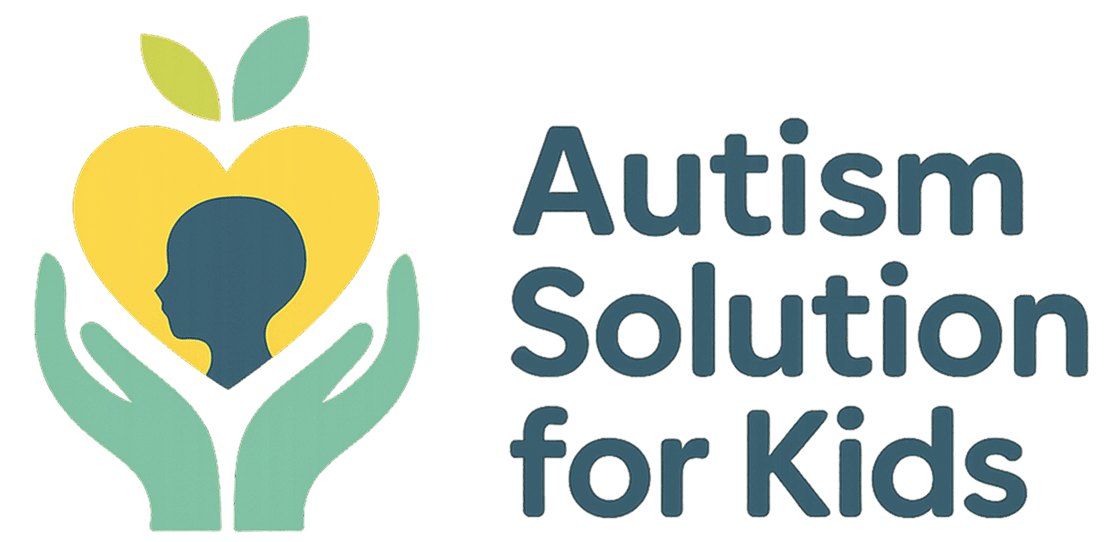What are the 12 Signs of Autism in Adults?
Discover the 12 signs of autism in adults and learn how to identify them. Understand autism better and help yourself or loved ones. Read more!
Autism Spectrum Disorder (ASD) is often thought of as a condition that primarily affects children. However, many adults also live with autism, sometimes without even knowing it. Understanding the signs of autism is crucial because early identification can lead to better support and improved quality of life. In this article, we will explore what are the 12 signs of autism in adults? These signs encompass a variety of behavioral, cognitive, and social characteristics that may go unrecognized. By highlighting these signs, we hope to raise awareness and provide valuable insights for adults who might be navigating through life on the autism spectrum.
Understanding Autism Spectrum Disorder in Adults
Autism is often described as a spectrum disorder, which means that it affects individuals in various ways, and the signs can differ significantly from one person to another. Understanding how autism manifests in adults is essential for appropriate diagnosis and support. When asking what are the 12 signs of autism in adults?, it is important to remember that these signs can be subtle and may not always lead to a clear-cut diagnosis.
Many adults with autism have learned to mask their symptoms, often going through life without ever realizing they may be on the spectrum. Identifying the traits of autism can help others understand themselves better and facilitate important conversations about their mental health. Furthermore, recognizing these signs is crucial for caregivers, educators, and mental health professionals to provide necessary support and strategies tailored to individuals’ needs.
Here are the 12 signs of autism in adults that we will be discussing:
- Difficulties with Social Interactions
- Challenges in Understanding Social Cues
- Repetitive Behaviors or Routines
- Hyper-fixation on Specific Interests
- Difficulty Adjusting to Change
- Unique Sensory Experiences
- Struggles with Communication
- Emotional Challenges
- Social Anxiety
- Issues with Executive Functioning
- Difficulty with Empathy
- Strong Adherence to Rules and Structure
In the sections that follow, we will explore each of these signs in detail, examine how they manifest in adults, and provide insights on coping strategies and support for those who may experience them.
Difficulties with Social Interactions
One of the most commonly recognized signs when discussing what are the 12 signs of autism in adults? is the struggle with social interactions. Many adults with autism have difficult navigating social situations, leading to challenges in making and maintaining friendships. This difficulty does not stem from a lack of interest in socializing; instead, it often arises from misunderstandings of social norms and cues.
For some, social gatherings can be overwhelming. The complexity of interactions, coupled with sensory stimuli from places like bars or crowded rooms, can make these situations extraordinarily stressful. Many adults might find themselves preferring solitary activities or choosing to socialize in smaller, more controlled environments where they feel more comfortable.
Outside of social gatherings, adults may find it hard to initiate conversations or keep them flowing. They might miss out on the unspoken rules of communication, such as knowing when it’s their turn to speak or how to interpret a friend’s body language. This might lead to them being perceived as rude or aloof, which can further alienate them from potential social connections.
Strategies for improving social skills often involve constant practice and learning. Participating in social skills groups, role-playing conversations, and even seeking a mentor can help individuals with autism navigate the social landscape more effectively. It’s also important for friends and family to provide a supportive environment, encouraging individuals to express their feelings and work on their social skills without the fear of judgment.
Challenges in Understanding Social Cues
Understanding social cues can be incredibly complicated for adults with autism. The subtleties of body language, gestures, tone of voice, and facial expressions can be difficult to interpret. This difficulty aligns closely with the first sign discussed but focuses particularly on the nuances of communication that others might take for granted.
When considering what are the 12 signs of autism in adults?, it’s crucial to emphasize that these challenges can lead to significant misunderstandings. For example, someone may not recognize that a sarcastic comment is meant to be humorous. This lack of understanding can create tension in personal relationships, as misinterpretations may be perceived as insensitivity or lack of interest.
Adults on the spectrum often benefit from explicit communication. Clear and straightforward dialogue can help bridge the gap between their understanding and what is generally accepted in social contexts. Support from relationships, workplaces, or community environments is vital to foster tolerance and understanding. Engaging in discussions about how to communicate effectively can significantly enhance the quality of interactions.
Furthermore, it can be beneficial for friends and loved ones to bring awareness to these challenges. Simple actions like explaining metaphors or clarifying intentions can facilitate understanding. Using visual aids or examples can also aid comprehension of complex social situations, making social interactions feel more manageable.
Repetitive Behaviors or Routines
Another notable sign to consider when exploring what are the 12 signs of autism in adults? is the presence of repetitive behaviors and routines. Many adults with autism find comfort in having set routines or engaging in repetitive movements. For some, this might manifest as a preference for certain activities, while for others, it might be involuntary repetitive actions like rocking or fidgeting.
These repetitive behaviors can provide a sense of stability in a chaotic world, and changes to routine can lead to significant distress. Adults on the spectrum may find themselves sticking to the same schedule for years and may experience anxiety when faced with even minor alterations to their daily plan. This need for routine can be especially pronounced in stressful situations, serving as a coping mechanism to manage overwhelming feelings.
For instance, if someone’s daily routine includes a morning coffee at a designated café, the slightest change—like a different barista or an unavoidable closure—can lead to frustration. Encourage developing flexible thinking through gradual exposure to changes can help alleviate the anxiety associated with routine disruptions. This could include practicing small changes in their day-to-day life and providing reassurance that they can handle these variations.
Hyper-fixation on Specific Interests
Individuals with autism often develop interests that can be deep and consuming. This hyper-fixation can offer adults immense joy, as they immerse themselves in topics they are passionate about. However, the intense focus can sometimes blur the lines of conversation in social settings, as the individual might dominate discussions about these interests, potentially boring or alienating others.
When exploring what are the 12 signs of autism in adults?, it’s essential to recognize that this hyper-fixation can also have positive aspects. Many adults have channeled their passions into successful careers, art, or hobbies. Communicating about these interests can foster connections with like-minded individuals, mitigating feelings of isolation. On the flip side, if they can’t engage others in their interests, it may lead to frustration or the feeling of being misunderstood.
It’s beneficial for friends, family, and colleagues to nurture these interests while also encouraging a balance in conversations. By presenting opportunities for both sharing and listening, individuals with autism can practice engaging with others while still maintaining their identity. It’s essential to validate their interests while also gently steering conversations toward mutual topics, ensuring that social interactions remain enjoyable for everyone involved.
Difficulty Adjusting to Change
As previously mentioned, maintaining routines can be vital for individuals on the autism spectrum. Consequently, transitioning to new situations or adapting to changes can prove to be particularly challenging. This difficulty adjusting to change can lead to increased anxiety and uncertainty, which may manifest in various ways such as withdrawal, anger, or panic responses.
When pondering what are the 12 signs of autism in adults?, it’s important to recognize that this resistance to change is not merely stubbornness—it’s often rooted in a need for predictability and security. Unexpected changes can disrupt the sense of control and stability they’ve established, prompting a defensive reaction that can affect personal and professional relationships alike.
Supporting individuals in adapting to change often involves preparing them for upcoming transitions. Utilizing visual schedules or countdowns can help them mentally prepare for changes. Gradual exposure to variability in their environments can also foster resilience and flexibility, allowing them to cope better with these shifts over time.
Unique Sensory Experiences
Many adults with autism experience the world differently than neurotypical individuals. They may have heightened sensitivity to certain sensory inputs or, conversely, may seek out sensory experiences that others may find overwhelming. This leads to an array of sensory preferences, aversions, or stimuli-related challenges when addressing the question of what are the 12 signs of autism in adults?.
Sensory overload—such as loud noises, bright lights, or certain textures—can provoke anxiety or distressing reactions in individuals with autism. Conversely, some may seek out intense sensory experiences, such as spinning, jumping, or engaging with various textures. Finding environments that accommodate these sensory needs is pivotal for maintaining comfort and reducing overwhelming feelings.
Advocating for sensory-friendly spaces can empower individuals with autism, providing them opportunities to express their unique sensory preferences. Encouraging them to identify their sensory triggers can offer valuable insights, enabling them to develop self-regulation techniques. For example, practicing deep breathing exercises or using weighted blankets may provide relief during sensory overload episodes.
Struggles with Communication
Communication challenges can also be a defining sign of autism in adults. These challenges can manifest in various forms, such as difficulty expressing thoughts or understanding verbal and non-verbal communication. When exploring what are the 12 signs of autism in adults?, it’s crucial to note that many adults may have strong vocabularies but struggle to organize their thoughts or convey them coherently in conversation.
Some individuals may find it hard to maintain eye contact, which can lead to misinterpretations of their interest or engagement levels. Others may have a preference for written communication, where they can take their time to organize their thoughts. Understanding these communication preferences can be essential for promoting effective interactions.
Encouraging communication through various mediums can help alleviate the pressure associated with spoken conversation. Allowing individuals to express themselves through writing, texting, or even art can foster a greater sense of connectedness and understanding. Additionally, patience and conscious listening can make conversations feel less daunting.
Emotional Challenges
Adults with autism may struggle with emotional regulation—an area that can significantly impact their daily lives. Emotional challenges can arise in terms of recognizing, expressing, and managing feelings and reactions to the environment. When reflecting on what are the 12 signs of autism in adults?, emotional dysregulation often plays a pivotal role in the experiences of adults on the spectrum.
Feelings of frustration, anxiety, or sadness might escalate quickly, leading to overwhelming emotions that are hard to process. Often, these individuals may struggle to articulate their feelings, leading to misunderstandings or perceived emotional detachment. Mental health support and open conversations around emotions can foster healthier coping mechanisms.
Moreover, practicing mindfulness techniques and emotion regulation strategies can improve emotional awareness. Techniques like journaling, meditation, and cognitive-behavioral methods can empower individuals to proactively manage their feelings. Encouraging emotional expression in safe, supportive environments is equally crucial in ensuring the emotional well-being of individuals with autism.
Social Anxiety
Due to the challenges described above, many adults with autism experience social anxiety. The apprehension of social interactions may stem from the fear of being misunderstood or not fitting in. When considering what are the 12 signs of autism in adults?, it’s essential to recognize that this anxiety can permeate various aspects of daily life, leading to avoidance of events, gatherings, or even simple conversations.
Social anxiety can hamper the capacity to form relationships and engage with others comfortably. Adults may find that anxiety heightens their discomfort in social situations, leading to withdrawal or avoidance altogether. Support can be schema-based to provide gradual exposure to social settings.
Therapeutic approaches like cognitive-behavioral therapy (CBT) can be effective in addressing anxiety. These strategies empower adults with autism to identify and challenge negative thought patterns around social situations, enhancing their coping capabilities.
Issues with Executive Functioning
Executive functioning refers to set of cognitive processes that include planning, organization, time management, and impulse control. Many adults with autism face challenges in these areas, often resulting in difficulties with daily tasks, decision-making, and maintaining responsibilities. Notably, when evaluating what are the 12 signs of autism in adults?, executive functioning issues can greatly impact personal, academic, and professional lives.
For instance, adults on the spectrum may find it challenging to prioritize tasks, leading to overwhelming feelings. Procrastination and difficulty initiating tasks might arise, resulting in missed deadlines or unfinished projects. Support can be structured in the form of developing routines, checklists, and time management aids to improve functioning.
Therapeutic strategies focusing on organizational skills, decision-making frameworks, and self-advocacy can greatly improve executive functioning to alleviate pressures associated with responsibilities. Developing personalized strategies can empower individuals, fostering independence while enhancing their daily living skills.
Difficulty with Empathy
Empathy can be a complex topic when discussing adults with autism. While it’s a common misconception that individuals on the spectrum lack empathy, many may simply process feelings differently. This can cause visible differences in how they connect with others and respond emotionally. When considering what are the 12 signs of autism in adults?, this variation in empathetic understanding can lead to conflicts or misunderstandings in social contexts.
Some adults might struggle to understand others’ emotional perspectives or may have difficulty expressing their empathy in conventional ways. For example, they may respond to a friend in distress with information rather than emotional support, which can be misinterpreted as insensitivity.
Encouraging explorations of emotional scenarios or role-playing can improve empathetic responses. Discussions around emotional perspectives within daily conversations can also enhance understanding, helping individuals feel more connected to the feelings of those around them.
Strong Adherence to Rules and Structure
Finally, many adults with autism display a strong preference for rules and structure in both professional and personal settings. This preference can lead to frustration when faced with ambiguity or unpredictability. When questioning what are the 12 signs of autism in adults?, this rigidity can represent a fundamental need for control, especially in a world that seems chaotic and inconsistent.
In environments where rules and expectations are clearly defined, adults on the spectrum may thrive. However, ambiguity or unstructured situations can present difficulties that may lead to tension or anxiety. Cultivating environments of structure while gradually introducing flexibility can facilitate growth and adaptability.
It’s essential for friends, family, and coworkers to provide clarity and consistency wherever possible, which helps create a supportive atmosphere. Acknowledging their preferences for structure while also encouraging them to explore more flexible approaches can empower personal growth without overwhelming them with unpredictability.
Conclusion
Understanding the signs of autism in adults is a vital step toward promoting awareness, inclusivity, and support for individuals on the spectrum. By recognizing what are the 12 signs of autism in adults?, we can better accommodate their needs and lessen the burden of social expectations. Each sign presents its unique challenges, but they also offer opportunities for growth and connection. Through patience, empathy, and tailored support, adults with autism can navigate the world on their terms, fostering greater understanding and acceptance within society.
Whether it’s by adhering to routines or engaging in passionate interests, every individual with autism brings a valuable perspective to our communities. Let’s continue striving to understand, support, and appreciate these diverse experiences to enhance the quality of life for those navigating the complexities of autism.
Frequently Asked Questions
1. What should I do if I suspect I have autism?
If you suspect you may be on the autism spectrum, seeking support from a healthcare professional is crucial for accurate diagnosis and guidance. Therapy, counseling, and community resources can provide valuable insights.
2. Can adults develop autism later in life?
Generally, autism is a developmental condition often identified in childhood. However, some individuals may not recognize their symptoms until adulthood, leading to late diagnosis.
3. How can I support a loved one with autism?
Support often begins with open communication and understanding. Encourage them to express their needs and preferences, while fostering a comfortable environment devoid of judgment.
4. Are there therapies specifically for adults with autism?
Yes, therapies such as cognitive-behavioral therapy (CBT), social skills training, and life coaching can significantly benefit adults with autism by tailoring strategies to address their unique challenges.
5. What resources are available for adults with autism?
Various resources are available, including community support groups, online forums, educational workshops, and counseling services. Connecting with organizations focused on autism can provide vital information and support.





